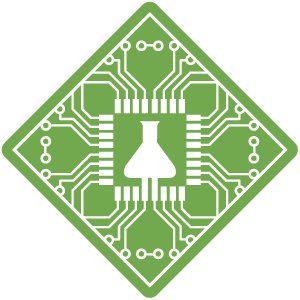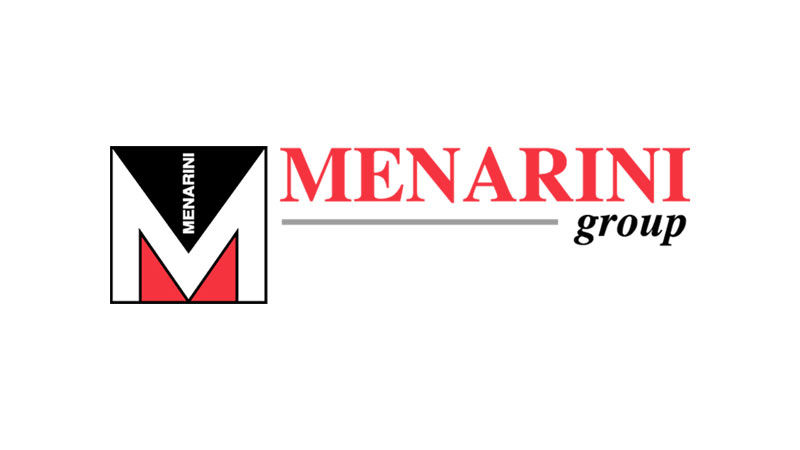预约演示
更新于:2025-11-29
ISM-5043
更新于:2025-11-29
概要
基本信息
原研机构 |
非在研机构- |
最高研发阶段临床1期 |
首次获批日期- |
最高研发阶段(中国)临床前 |
特殊审评- |
登录后查看时间轴
关联
1
项与 ISM-5043 相关的临床试验NCT06638307
A Phase 1, First-in-Human Study of MEN2312, a KAT6 Inhibitor, as Monotherapy and in Combination in Participants With Advanced Breast Cancer
This is a first-in-human study of MEN2312, a lysine acetyltransferase 6 (KAT6) inhibitor, in adult participants with advanced breast cancer.
开始日期2024-10-25 |
申办/合作机构 |
100 项与 ISM-5043 相关的临床结果
登录后查看更多信息
100 项与 ISM-5043 相关的转化医学
登录后查看更多信息
100 项与 ISM-5043 相关的专利(医药)
登录后查看更多信息
28
项与 ISM-5043 相关的新闻(医药)2025-11-24
·BD随笔
2025年,具有里程碑意义的肥胖药物交易、中国生物技术的激增以及人工智能与制药业务的深度融合,推动了生命科学新的发展势头。从高风险的临床突破到数十亿美元的交易,再到有争议的政策转变,2025年的制药和生物技术世界被证明是充满活力的。时间过得真快,2025年就快过去了,笔者据个人经验总结一下医药行业的几个主要的趋势:
1. “减重”是2025年的关键词热潮的一年
最近辉瑞公司自己研发几条减重管线全部停止,最近宣布以100亿美元成功收购肥胖药物开发商Metsera,笔者写了多篇文章,感兴趣的也可以回顾辉瑞“抱得美人归”,把Metsera拿下Crazy!辉瑞继续跟进:报价更新到100亿!GLP1赛道越来越有看点:辉瑞和诺和诺德激战正酣,安进跳出来展示实力了,笔者隐约感觉到了“鹬蚌相争渔翁得利”的味道,辉瑞公司和Metsera公司的交易,为充满肥胖药物开发新闻的一年涂上了浓墨重彩的一笔。多年一后,或者这一交易会被证明改变了减重市场的格局。
减重领域的新星替尔泊肽在2025年第三季度,单季销售额突破101亿美元,前三季度累计达248.37亿美元,已超过默沙东的K药(前三季度销售额233.03亿美元)。仅替尔泊肽单一品种,有机构预测全年销售会超过320亿美元,这充分说明全球对于减重的巨大需求。
减重领域市场上已经上市的主要是利拉鲁肽、司美格鲁肽、替尔泊肽、玛仕度肽等,国内博瑞生物、恒瑞医药、先为达、豪森、华东医药、众生药业等众多药企都在这一领域布局。有机构预测该领域到2031年,预计将有20多种新的抗肥胖治疗方法在主要市场获得批准。
2.生物制药并购的复苏之年
医药交易在2025年也是非常热闹。制药巨头在生物技术合作和收购方面投入了大量资金进行并购,或者收购Biotech的管线资产。收购的标地从以上所述的肥胖到神经学、肿瘤学和罕见病。分子形态包括大分子、ADC、 分子胶和常规小分子。
今年1月,强生公司宣布以146亿美元的总股本收购神经病学领导者Intra-Cellular Therapies,拉开了这一趋势的序幕。
其它代表性交易笔者总结如下:
1月,艾伯维正与Neomorph就合作开发分子胶降解剂达16.4亿美元的交易。
2月,AbbVie与Xilio Therapeutics就肿瘤激活免疫疗法达成了价值高达21亿美元的合作协议。
3月,罗氏与Zealand就减重管线( CT-388,)胰淀素达成价值53亿美元协议。这是一个双靶( GLP-1 and GIP)的减重药。
5月,葛兰素史克(GSK)斥资12亿美元收购波士顿制药公司(Boston Pharmaceuticals)的研究性FGF21类似物efimosfermin alfa,该药物将用于治疗代谢功能障碍相关脂肪性肝炎等脂肪变性肝病。
5月礼来公司以高达10亿美元的价格收购SiteOne Therapeutics,为其产品线增加了一系列非阿片类止痛药。
5月,诺和诺德希望在竞争对手竞相领先的情况下保持肥胖药物市场的领先地位,与Septerna达成协议,共同开发小分子口服肥胖药物。达成高达22亿美元的合作协议。
6月,Revolution Medicines已与Royalty Pharma就RAS(ON)抑制剂签署了一项价值20亿美元的合作协议。
6月,赛诺菲以95亿美元的价格收购了Blueprint Medicines,收购了一种已获批准的罕见病药物和早期免疫学产品线。
6月,BMS和RayzeBio就放射性药物合作达到13亿美元的合作。
6月BMS和BioNTech就一款治疗solid tumor 的BNT327管线达成110亿美元的交易 。
9月Arrowhead Pharmaceuticals和诺华经达成了一项20亿美元潜力的交易,产品管线属于帕金森病领域。
10月,诺和诺德收购了Akero,总交易额达到了52亿美元。同月诺华和Monte Rosa Therapeutics 就分子胶管线达成交易,总交易达57亿美元。
10月,诺华公司以约120亿美元收购了神经肌肉药物开发商Avidity Biosciences。
11月,Merck 以92亿美元收购Cidara Therapeutics,把其抗病毒管线向商业化推进。
11月,强生以30亿美元收购 Halda Therapeutics,主要是看中其癌症领域的资产。
11月,雅培以210亿美元收购Exact Sciences。
按这个趋势,在2025年12月还会产生一些交易,让我们共同期待。3.中国崛起为主要创新中心
中国曾是制药供应链中最著名的原料药开发生产中心(目前仍保持这一地位),2025年,中国作为新兴的药物开发中心成为头条新闻。大型制药公司参与了大量交易,让我们回顾一下中国医药公司和海外的重大交易:
1月,先为达和Veidiva就减重药物达成25亿美元的合作。
1月,启德医药和Biohaven就ADC管线达成潜在总金额达130亿美元的合作。
3月,和铂医药和阿斯利康就抗体药物达成总金额达46亿美元的合作。
3月,元思生肽和阿斯利康就代谢类管线达成近35亿美元的合作。
25月,靖因药业与CRISPR达成合作协议,总金额超过8亿美元的付付款加里程碑付款。
6月,阿斯利康与石药合作,利用人工智能为各种慢性病开发新型口服疗法,达成53亿美元总金额合作。
7月,葛兰素史克与恒瑞合作就慢性阻塞性肺病候选药物HRS-9821,达成120亿美元合作。
9月,舶望制药与诺华达成一项新的战略合作,双方共同开发针对心血管疾病的siRNA药物。此次合作总潜在里程碑高达52亿美元。
5月,辉瑞公司三生制药合作研发PD-1/VEGF双特异性抗体,总交易金额达60亿美元。
8月,Dovetree和晶泰科技就一款早期项目达成近60亿美元的合作。
10月,武田收购信达的三个分子,进行全球合作,合作金额达114亿美元。
10月 Roche 和豪森就一款ADC (HS-20110)达成15亿美元的合作。
10月,Zenas和诺诚健华就新一代BTK抑制剂达成总金额超20亿美元的合作。
有机构提供的数据显示:大型制药公司从中国生物制药公司获得了28%的创新药物许可,创下历史新高。 这些交易有的来自于中国的大型药企,也有来自于中国的Biotech。分子形态有小分子,有大分子,还有ADC,多肽,小核酸,可以说是“百花齐放”。4.人工智能与生物技术/制药运营的融合
人工智能不仅正在成为药物发现过程中不可或缺的一部分,而且正在加速整个开发和制造过程中的创新。10月,礼来公司和强生公司与其他大型制药同行一起加大了对人工智能的投资,礼来希望创建该行业“最强大的超级计算机”,强生公司则建造了一个虚拟手术室。这两家公司都与科技巨头英伟达建立了关系。当月早些时候,武田制药宣布与现有合作伙伴Nabla Bio签署了一项为期多年的人工智能合作协议。
国外巨头都在人工智能进行布局,国内的英矽智能、晶泰科技也做出了令人瞩目的成果:11月10日,英矽智能宣布与全球头部跨国药企礼来达成药物研发战略合作,合作收益超1亿美元。MEN2312许可给海外企业,获得的潜在收益超过5亿美元。晶泰科技在8月也对外公告,宣布与DoveTree Medicines完成总订单规模约60亿美元的管线合作签约。
国内无论是Biotech还是大药企,都在人工智能上进行布局,如有些药企引入Deepseek, 提高工作效率;有的企业引入人工智能,辅助设计药物分子;还有的企业,如镁睿科技把人工智能应用在早期药物研发工作中,为企业提供高效的FTE服务。
笔者还写过一文章AI赋能下将来的医药研发生产是什么样的呢?
制药和生物技术行业因为中国研发的崛起,人工智能的应用,正在产生巨大的变革。笔者认为,特别是AI给以新药研发的赋能,将来的药物研发速度会更快,上市时间减少,一定是解决病患需求。另外,中国已然成为世界排名第二的医药研发“大户”,医药研发是解决病患需求,提高他们的生活质量,这个是刚性的需求,随着中国医药人的努力,我们有理由相信,中国医药会更全面、更深入地参与到全球医药研发,并从一定程度上改变全球的医药研发格局!我们共同期待!
2025-11-12
公司概况与研究背景
Insilico Medicine(英矽智能)作为全球 AI 药物发现领域的先驱企业,正在重新定义传统药物研发的边界。这家成立于 2014 年的临床阶段生物技术公司,由 Alex Zhavoronkov 博士创立,已发展成为一家真正意义上的端到端生成式 AI 驱动的全球性生物科技公司。公司的核心竞争力在于其自主研发的Pharma.AI 平台,该平台融合了生物学、化学和临床医学三大板块,为药物研发全流程提供强劲支持。
当前,AI 药物发现市场正处于爆发式增长的关键时期。根据多家权威机构预测,该市场规模将从 2024 年的17.2 亿美元增长到 2030 年的 85.3 亿美元,复合年增长率高达30.59%。在这一快速增长的市场中,Insilico Medicine 凭借其独特的技术优势和商业化进展,已成为行业内最受关注的企业之一。
本研究报告将深入剖析 Insilico Medicine 的三大核心平台 ——**PandaOmics(靶点发现)、Chemistry42(分子生成与优化)和 inClinico(临床试验预测)** 的技术架构与创新突破,全面评估其商业化进展与在肿瘤学、神经退行性疾病等关键治疗领域的应用成果,并与 Exscientia、Schrödinger、BenevolentAI 等主要竞争对手进行多维度对比分析,为投资者、行业观察者和潜在合作伙伴提供全面的决策参考。
一、技术平台深度分析1.1 PandaOmics:AI 驱动的靶点发现引擎
PandaOmics作为 Insilico Medicine 的核心靶点发现平台,代表了 AI 在生物医学研究领域的重大突破。该平台于 2020 年正式推出,是一个基于云的软件平台,应用人工智能和生物信息学技术处理多模态组学和生物医学文本数据,用于治疗靶点和生物标志物的发现。
在技术架构方面,PandaOmics 展现出了强大的数据处理能力和算法创新。平台采用了包含23 种专用疾病模型的深度学习架构,这些模型通过生成式 AI 技术与人类专家验证相结合而产生。平台的数据库规模令人印象深刻,整合了来自超过 1000 万个样本(包括微阵列、RNA 测序和蛋白质组)的1.9 万亿个数据点,以及来自超过 4000 万份文档(包括专利、拨款、出版物和临床试验报告)的文本信息。
PandaOmics 的核心技术创新体现在其生物知识图谱的构建上。该平台利用基于 Transformer 的自然语言处理模型,分析过去 30 年发表的生物医学信息,生成疾病 - 基因 - 通路 - 药物的综合关联网络。这种知识图谱不仅能够识别已知的关联,还能发现隐藏的生物学连接,为靶点发现提供全新的视角。
在功能特性方面,PandaOmics 提供了一站式的靶点发现工作流程。平台首先进行数据集选择和样本组比较,然后进行基因和通路水平的分析,包括分子特征与临床数据之间的相关性探索。平台将这些步骤的结果整合到荟萃分析中,通过从文本数据中提取的先验知识来增强靶点预测。
PandaOmics 的ChatPandaGPT功能是其另一大亮点。这个基于大语言模型的工具能够对组学驱动的发现进行文本总结,并在已发表数据的背景下进行语境化,帮助研究人员更好地理解和解释分析结果。这种人机协作的模式大大提高了靶点发现的效率和准确性。
在实际应用效果方面,PandaOmics 展现出了卓越的性能。根据验证数据,使用所有评分方法的平均富集倍数约为15 倍,这意味着如果随机排名在前 100 名中只有 2 个与疾病相关的基因,PandaOmics 的聚合排名在前 100 名中包含约30 个相关基因。这种显著的性能提升为药物研发节省了大量的时间和资源。1.2 Chemistry42:智能化分子生成与优化平台
Chemistry42是 Insilico Medicine 于 2020 年推出的可定制化全自动软件平台,它将生成式 AI 算法与计算化学和药物化学方法相结合,能够在数天内生成具有潜在类药性质的新颖分子。该平台的推出标志着药物分子设计从传统的试错模式向 AI 驱动的智能设计模式的重大转变。
在技术架构上,Chemistry42 采用了先进的分布式云架构和 Kubernetes 集群管理,通过灵活的工作流设计将生成模型与计算化学工具链深度融合。平台的核心是其独特的 **"生成 - 评估 - 迭代" 闭环系统 **,能够根据用户定义的理化性质、ADMET 参数等目标函数,动态调整生成策略。
Chemistry42 的生成能力基于40 多个并行运行的生成模型,这些模型包括生成自编码器和生成对抗网络(GANs)等多种架构。平台的生成管道采用了专有的生成模型异步集成,这些精心策划和选择的算法具有多样化的架构,实现了不同的生成策略。
在分子评估方面,Chemistry42 集成了多种预测模型,包括:
合成可行性预测模型:平台能够预测分子合成的难易程度,确保生成的设计在实验室中是可实现的
ADMET 预测模型:评估分子的吸收、分布、代谢、排泄和毒性特征
Golden Cubes 脱靶评估模块:评估分子的脱靶效应,提高药物的安全性
平台的工作流程支持 ** 基于配体的药物设计(LBDD)和基于结构的药物设计(SBDD)** 两种模式。LBDD 方法需要 2D 或 3D 配体结构作为输入,可以是.sdf 文件、SMILES 字符串,或者使用平台提供的草绘器面板直接绘制分子草图。
Chemistry42 的一个重要创新是其与AlphaFold的集成。平台利用 AlphaFold 预测的蛋白质结构来指导化合物生成过程,实现了结构生物学与 AI 分子设计的完美结合。这种集成使得 Chemistry42 能够为全新靶点快速识别潜在的命中分子,大大缩短了从靶点发现到化合物筛选的时间。
在实际应用案例中,Chemistry42 展现出了惊人的效率。以公司的主打产品ISM001-055(Rentosertib)为例,Insilico 仅合成测试了少于 80 个分子就确定了临床前候选药物,这与传统药物发现动辄需要测试数千个分子的模式形成了鲜明对比。1.3 inClinico:临床试验成功概率预测平台
inClinico是 Insilico Medicine 于 2022 年 11 月推出的生成式 AI 驱动的软件平台,它利用数据驱动的多模态预测来预测II 期临床试验的结果。该平台的推出填补了 AI 药物发现领域在临床试验预测方面的空白,为药物研发后期的决策提供了重要的科学依据。
inClinico 的技术核心是其基于Transformer 架构的人工智能系统,专门用于预测 II 期临床试验的结果。平台的预测引擎整合了多种数据源,包括小分子化学性质、转录组学、文本数据和临床试验协议,实现了真正的多模态分析。
平台采用了三个独立的 AI 引擎来产生综合评分:
试验设计评分引擎:评估临床试验方案的科学性和可行性
靶点选择评分引擎:评估目标靶点的生物学合理性和药物可及性
患者入组标准评分引擎:评估患者群体选择的合理性
这三个引擎的输出被整合为一个元评分,表示任何试验成功的总体可能性。
在性能表现方面,inClinico 展现出了优异的预测能力。在准前瞻性验证数据集上,该平台在预测 II 期到 III 期转换时达到了0.88 的 ROC AUC(受试者工作特征曲线下面积)。在某些评估中,平台的准确率达到了79%,这一性能水平远超传统的临床试验成功率预测方法。
inClinico 的一个独特优势是其能够仅根据靶点和疾病信息生成评分,而无需详细的试验设计信息。研究表明,靶点选择对 II 期临床试验结果预测的影响甚至超过了试验设计本身。这一发现为早期药物研发决策提供了重要启示。
平台的应用价值不仅限于临床试验预测。它还可以用于临床风险评估和投资组合分类,帮助制药公司优化研发资源配置,降低研发风险。此外,inClinico 还被金融机构用于评估药物研发项目的投资价值,成为连接科学研究与资本市场的重要桥梁。二、商业化进展评估2.1 战略合作与授权协议
Insilico Medicine 在商业化方面取得了令人瞩目的成就,与多家全球领先的制药公司建立了深度战略合作关系。这些合作不仅验证了公司技术平台的商业价值,也为其带来了可观的收入和里程碑付款。
与礼来公司的合作是 Insilico Medicine 商业化进程中的重要里程碑。2025 年 11 月,两家公司宣布达成新的研究许可合作协议,英矽智能有权从该项合作中获得最高逾 1 亿美元的收益,包括首付款、研发里程碑付款以及未来药品商业化后的分级净销售额版税。这一合作充分体现了大型制药公司对 Insilico Medicine 技术平台的认可。
与 Exelixis 的合作展现了公司在肿瘤学领域的技术实力。2023 年 9 月,Insilico Medicine 将 XL309/ISM3091 的全球权益授权给 Exelixis,获得了8000 万美元的首付款。2024 年 12 月,公司基于 XL309 项目在临床阶段取得的进展,从 Exelixis 获得了首笔 1000 万美元的临床里程碑付款。根据协议,未来的里程碑付款及特许权使用费最高可达8.75 亿美元。
与美纳里尼集团的合作是公司在肿瘤学领域的又一重要突破。2025 年 1 月,双方针对 AI 发现的临床前资产签订了第二份独家全球许可协议。根据协议,美纳里尼集团将获得该资产的全球开发和商业化权利,交易包括2000 万美元的预付款,包括所有开发、监管和商业里程碑在内的总价值超过5.5 亿美元,后续还有分层版税。
与复星医药的合作标志着公司在中国市场的重要布局。根据协议,英矽智能将获得1300 万美元的首付款及里程碑式付款,并分享 QPCTL 项目的商业化利润。这一合作不仅带来了资金支持,也为公司在中国市场的发展奠定了基础。
与 Stemline Therapeutics 的合作展现了公司在激素敏感性癌症治疗领域的创新能力。2023 年 12 月,公司将 ISM5043 的全球权益授权给 Stemline,获得1200 万美元首付款,未来里程碑付款及特许权使用费最高可达5.06 亿美元。2.2 自主研发管线进展
Insilico Medicine 的自主研发管线展现出了强劲的创新能力和临床潜力,多个项目已进入临床试验阶段,验证了其 AI 平台的实际应用价值。
ISM001-055(Rentosertib)是公司的旗舰产品,这是一种针对 TNIK(TRAF2 和 NCK 相互作用激酶)的小分子抑制剂,用于治疗特发性肺纤维化(IPF)。该药物的开发过程充分体现了 AI 药物发现的效率优势:从靶点发现到提名临床前候选药物仅用18 个月,I 期至 IIa 期临床试验耗时9 个月,临床前投入仅260 万美元。
2024 年 11 月公布的 IIa 期临床试验结果令人振奋。在这项为期 12 周的双盲、安慰剂对照研究中,71 名 IPF 患者被随机分配接受安慰剂或不同剂量的 ISM001-055 治疗。结果显示:
在最高剂量 60mg QD 下,患者的FVC(用力肺活量)从基线平均改善了 98.4 毫升,而安慰剂组患者的 FVC 从基线变化平均下降了 **-62.3 毫升 **
患者在预测用力肺活量百分比(ppFVC)方面也显示出类似的剂量依赖性趋势,在最高剂量 60mg QD 下,ppFVC 从基线平均改善3.05%,而安慰剂组为 **-1.84%**
药物表现出良好的安全性和耐受性,所有剂量水平均达到了主要终点
ISM5411是公司开发的一种肠道限制性 PHD1/2 抑制剂,用于治疗炎症性肠病(IBD)。该药物已在澳大利亚和中国完成了两项 I 期临床试验,展现出良好的安全性和耐受性,并初步验证了其肠道限制性药代动力学特征。基于这些积极结果,Insilico Medicine 预计将于 2025 年下半年启动 II 期概念验证研究,评估 ISM5411 在活动性溃疡性结肠炎患者中的疗效。
ISM6331是一种新型泛 TEAD 抑制剂,用于治疗间皮瘤和其他实体瘤。2025 年 1 月,该药物已完成首例患者给药,正在中国和美国进行全球 I 期临床试验,旨在评估其安全性、耐受性、药代动力学和初步抗肿瘤活性。
ISM5939是一种口服 ENPP1 抑制剂,用于治疗实体瘤。该药物已获得美国 FDA 的 IND(研究性新药)批准。ENPP1 是一种在肿瘤免疫逃逸中起关键作用的酶,ISM5939 通过调节 STING 通路来增强肿瘤免疫力,代表了癌症免疫治疗的新方向。2.3 融资历程与估值增长
Insilico Medicine 的融资历程反映了资本市场对其技术和商业模式的强烈信心。截至 2025 年 6 月,公司已完成11 轮融资,累计融资超过4 亿美元。
公司的融资历程呈现出明显的加速趋势:
2017 年:A 轮和 A + 轮融资,分别为1000 万美元和400 万美元
2018 年:A++ 轮融资,投资方包括 Bold Capital Partners、药明康德、Pavilion Capital 等
2019 年:B 轮融资3700 万美元,投资方包括启明创投、斯道资本、F-Prime Capital、礼来亚洲基金等
2022 年:D 轮融资6000 万美元,D + 轮融资3500 万美元
2025 年:E 轮融资约1.23 亿美元,由惠理集团、浦东创投、浦发集团、锡创投等联合领投
E 轮融资的完成具有特殊意义,不仅因为其规模创历史新高,更因为它将公司估值推高至13.31 亿美元,使 Insilico Medicine 正式跻身独角兽行列。从 2018 年 A 轮融资时的5440 万美元估值到如今的 13.31 亿美元,公司估值增长了24.45 倍,堪称资本增值的传奇案例。
值得注意的是,E 轮融资的投资方阵容强大,包括亚洲最大的独立资产管理公司之一惠理集团、浦东创投和浦发集团等政府引导基金,以及锡创投和宜兴国控等地方国资平台。这种多元化的投资结构不仅带来了资金支持,也为公司未来的发展提供了重要的资源和渠道。2.4 收入模式与财务表现
Insilico Medicine 采用了多元化的收入模式,主要包括:
授权费收入:通过向合作伙伴授权 AI 平台技术获得首付款
里程碑付款:基于研发进展获得的阶段性付款
特许权使用费:基于商业化产品销售额的分成
合作研发收入:与制药公司合作开展研发项目的收入
从财务表现来看,公司近年来的亏损呈现收窄趋势。2022 年、2023 年、2024 年的年内亏损分别为2.22 亿美元、2.12 亿美元、1709.6 万美元。2024 年亏损大幅收窄 92%,主要得益于阶段性授权首付款的确认。
然而,需要关注的是,公司的收入来源仍缺乏稳定性,主要依赖一次性的授权首付款。随着研发管线的推进,公司需要持续投入大量资金。报告期内的研发费用分别为7817.5 万美元、9734.1 万美元和9189.5 万美元。考虑到临床试验是新药上市过程中最费钱的环节,在整个研发周期中费用占比约为 80%,而公司在研管线全部处于临床前研发或早期临床阶段,未来的资金需求将非常巨大。三、核心治疗领域应用分析3.1 肿瘤学领域的创新突破
Insilico Medicine 在肿瘤学领域展现出了强大的创新能力,其 AI 平台已成功发现和设计了多个具有突破性潜力的肿瘤治疗药物。
ENPP1 抑制剂的开发代表了公司在肿瘤免疫治疗领域的重要突破。ENPP1 是一种在肿瘤微环境中高度表达的酶,它能够降解 ATP 产生腺苷,从而创造一个免疫抑制环境,帮助肿瘤细胞逃避免疫系统的攻击。Insilico Medicine 开发的口服 ENPP1 抑制剂 ISM5939 通过有效调节 STING 通路来增强肿瘤免疫力。2024 年 11 月,该药物获得了美国 FDA 的 IND 批准,标志着其正式进入临床开发阶段。
临床前研究显示,ISM5939 在体内研究中展现出了强大的抗肿瘤效力,同时具有良好的安全性特征,以及优异的体外 ADMET 和体内药代动力学特性。该药物的独特之处在于它不仅能够阻断 ENPP1 的酶活性,还能够调节 STING 通路,从而产生协同的抗肿瘤免疫反应。
CDK12/13 双抑制剂的设计展现了公司在靶向 DNA 损伤反应通路方面的创新能力。CDK12/13 是 DNA 损伤反应(DDR)通路中的关键组成部分,在维持基因组稳定性方面发挥着重要作用。Insilico Medicine 利用 PandaOmics 平台成功识别了 CDK12/13 作为肿瘤治疗靶点,并通过 Chemistry42 平台设计出了高效、选择性和安全的 CDK12/13 抑制剂。
PandaOmics 中嵌入的疾病优先级排序工具揭示了 CDK12/13 靶点的优先疾病适应证,将研究重点聚焦于包括胃癌、卵巢癌、前列腺癌、非小细胞肺癌、肝癌、三阴性乳腺癌(TNBC)和结直肠癌在内的多种癌症类型。这种基于 AI 的精准靶向策略大大提高了药物开发的成功率。
泛 TEAD 抑制剂 ISM6331 的开发体现了公司在靶向 Hippo 信号通路方面的技术实力。TEAD 转录因子是 Hippo 信号通路的关键效应分子,在多种肿瘤的发生发展中起重要作用。ISM6331 作为一种强效的泛 TEAD 抑制剂,能够有效恢复 Hippo 通路的平衡,通过阻断多个促进癌症进展基因的转录来防止肿瘤细胞的增殖和存活。
KAT6A 抑制剂的创新设计展现了公司在克服内分泌治疗耐药性方面的独特思路。MEN2312 是 Insilico Medicine 研发团队在其端到端 Pharma 生成式 AI 平台帮助下设计的创新药物,它能够在转录水平上抑制 KAT6 并阻断内分泌受体(ER),使其有可能克服由于 ER 突变或配体非依赖性组成激活而导致的内分泌治疗耐药性。2025 年 1 月,美纳里尼集团与 Insilico Medicine 针对这一 AI 发现的临床前资产签订了独家全球许可协议,交易总价值超过 5.5 亿美元。3.2 神经退行性疾病的前沿探索
在神经退行性疾病领域,Insilico Medicine 展现出了长远的战略眼光和扎实的技术基础。公司已建立了针对 ** 帕金森病、阿尔茨海默病和肌萎缩侧索硬化症(ALS)** 等多种神经退行性疾病的内部药物发现项目。
帕金森病治疗药物的开发取得了重要进展。公司的研究性新药(IND)申请基于已完成的临床前研究结果,这些研究显示 ISM8969 在帕金森病小鼠模型中能够恢复部分运动技能。ISM8969 是一种能够穿透血脑屏障的 NLRP3 抑制剂,它通过抑制神经炎症来发挥神经保护作用。
阿尔茨海默病治疗的创新策略体现在多个方面。除了开发直接针对淀粉样蛋白和 tau 蛋白的药物外,Insilico Medicine 还在探索通过调节神经炎症来治疗阿尔茨海默病的新途径。公司与 Tenacia Biotechnology 的合作正是基于这一理念,双方正在利用 AI 技术探索中枢神经系统治疗药物的新机会。
ALS(肌萎缩侧索硬化症)的综合治疗方案展现了 AI 平台在复杂疾病治疗中的优势。PandaOmics 平台已被成功用于 ALS 的靶点发现研究,通过整合基因组学、转录组学和蛋白质组学数据,结合文本挖掘技术,成功识别了多个潜在的治疗靶点。研究团队利用超过 20 个 AI 和生物信息学模型,基于靶点 - 疾病关联、药物可及性、开发现状和组织特异性对潜在治疗靶点进行了排序,最终确定了17 个高置信度靶点和 11 个新靶点,总计 28 个 ALS 潜在治疗候选靶点。
公司在神经退行性疾病领域的研究还延伸到了其他适应症。ISM8969 不仅被开发用于治疗帕金森病和阿尔茨海默病,还被提名用于治疗包括癫痫在内的炎症相关疾病。这种 "一药多治" 的策略不仅提高了研发效率,也为患者提供了更多的治疗选择。3.3 纤维化疾病的革命性突破
纤维化疾病,特别是特发性肺纤维化(IPF),是 Insilico Medicine 取得重大突破的领域。ISM001-055(Rentosertib)的成功开发充分展现了 AI 药物发现的巨大潜力。
TNIK 靶点的发现过程堪称 AI 药物发现的典范。Insilico Medicine 借助 PandaOmics 模块对来自多源的多组学数据(转录组、蛋白组、单细胞组等)以及文献、专利、临床数据库中的海量记录进行了系统分析。平台通过自然语言处理(NLP)、图神经网络(GNN)和多维特征融合算法,构建了疾病 - 基因 - 通路 - 药物的综合关联网络。最终,PandaOmics 模块综合分析得出了一个与组织纤维化密切相关且具有可药性的高分候选靶点 ——TNIK。
Rentosertib 的临床开发历程创造了多个 "第一":
它是首个由生成式 AI 发现靶点并设计的药物进入人体临床试验
它是首个 AI 设计的药物针对 AI 发现的靶点(TNIK)进入 II 期试验
它的开发过程展现了前所未有的效率:从靶点发现到临床前候选药物仅用 18 个月,临床前投入仅 260 万美元
2025 年 6 月发表在《Nature Medicine》上的 IIa 期临床试验结果进一步验证了 AI 药物发现的科学性和有效性。在这项研究中,Rentosertib 在所有剂量水平上均达到了安全性和耐受性的主要终点。在最高剂量 60mg QD 下,患者的 FVC 从基线平均改善了 98.4 毫升,而安慰剂组患者的 FVC 从基线变化平均下降了 62.3 毫升。这种显著的疗效差异为 IPF 患者带来了新的希望。
纤维化疾病的拓展研究显示了 AI 平台的广泛适用性。除了 IPF,Insilico Medicine 还在开发针对其他纤维化疾病的治疗药物,包括肝纤维化、肾纤维化和皮肤纤维化等。公司的 AI 平台能够识别不同器官纤维化的共同病理机制和特异性靶点,为开发 "广谱" 抗纤维化药物提供了可能。3.4 其他治疗领域的战略布局
Insilico Medicine 的研发版图远不止于肿瘤学、神经退行性疾病和纤维化疾病。公司还在多个其他治疗领域进行了前瞻性布局:
炎症性疾病:ISM5411 作为一种肠道限制性 PHD1/2 抑制剂,不仅用于治疗溃疡性结肠炎,还在探索用于治疗克罗恩病等其他炎症性肠病。PHD1/2 是调节缺氧诱导因子(HIF)的关键酶,在炎症反应中发挥重要作用。
代谢性疾病:公司正在利用 AI 技术开发针对糖尿病、肥胖症和非酒精性脂肪性肝炎(NASH)的治疗药物。通过整合基因组学、代谢组学和临床数据,AI 平台能够识别新的代谢通路和治疗靶点。
自身免疫性疾病:基于对免疫系统的深入理解,Insilico Medicine 正在开发针对类风湿性关节炎、系统性红斑狼疮等自身免疫性疾病的创新疗法。
传染病:公司的 AI 平台在新冠疫情期间也发挥了重要作用,成功识别了多个潜在的抗病毒靶点和化合物。这种经验为未来应对新发传染病提供了技术储备。四、竞争格局与对比分析4.1 主要竞争对手概览
AI 药物发现领域竞争激烈,Insilico Medicine 面临着来自多个技术领先企业的挑战。根据 Frost&Sullivan 的数据,按 2022 年全球药物发现及开发服务收入计算,主要竞争对手的市场份额分布如下:
公司名称
市场份额
成立时间
总部
主要特点
Schrödinger
7.0%
1990 年
美国
基于物理的计算平台
Recursion
6.5%
2013 年
美国
大规模生物数据平台
Exscientia
5.5%
2012 年
英国
AI 设计药物进入临床
Insilico Medicine
5.0%
2014 年
美国 / 香港
端到端 AI 平台
BenevolentAI
2.0%
2013 年
英国
知识图谱驱动
Schrödinger作为该领域的老牌企业,成立于 1990 年,是一家美国计算机与软件公司,提供 AI 药物及材料发现服务。公司使用其差异化的基于物理的计算平台,能够实现高质量新颖分子的发现,但其临床管线目前处于早期开发阶段。Schrödinger 的优势在于其深厚的物理化学基础和成熟的软件产品,但在 AI 技术的前沿应用方面相对保守。
Exscientia成立于 2012 年,是 AI 驱动药物设计的早期先驱之一,平台覆盖药物发现多个环节。2021 年 10 月,Exscientia 在纳斯达克上市,成为 "AI 制药第一股"。公司的 Centaur AI 平台能够快速设计药物候选分子,整合蛋白质结构和高内涵筛选数据,实现效力和选择性的自动化分子优化。Exscientia 已成功将多个 AI 设计的分子推进到临床试验阶段,展现了强大的临床转化能力。
BenevolentAI成立于 2013 年,总部位于伦敦,是一家临床阶段的人工智能公司,将先进的 AI 和机器学习技术整合到药物发现和开发中。公司的核心优势在于其能够处理数百万篇科学论文和临床数据,通过先进算法发现隐藏的生物学联系,支持药物再利用以实现更快的市场进入。BenevolentAI 在罕见疾病和肿瘤学领域有深入布局,并与阿斯利康等大型制药公司建立了合作关系。
Recursion是一家快速成长的 AI 制药公司,其操作系统(OS)使用 AI 分析生物学和化学数据集,识别新的靶点和化合物。2024 年,Recursion 与 Exscientia 合并,创建了一家在合并时 18 个月内有 10 份临床报告值得期待的公司。合并后的公司在数据规模、技术能力和临床管线方面都将大幅提升。4.2 技术路线与平台功能对比
各公司在技术路线上呈现出明显的差异化特征:
Insilico Medicine 的全栈式 AI 平台具有独特优势。其 Pharma.AI 套件包括 PandaOmics(靶点发现)、Chemistry42(分子生成)和 inClinico(临床试验预测),形成了真正的端到端药物发现解决方案。这种一体化平台的优势在于数据的无缝流转和模型的协同优化,能够实现从靶点发现到临床候选化合物设计的全流程自动化。
Exscientia 的精准设计平台专注于小分子药物设计。其 Centaur AI 平台在分子优化方面表现出色,能够预测临床试验结果,I 期成功率达到 80%,相比行业平均水平有显著提升。Exscientia 的优势在于其在临床转化方面的成功经验,但主要专注于小分子药物,在生物制剂方面的能力有限。
Schrödinger 的物理驱动平台基于第一性原理计算,具有很高的理论严谨性。公司的软件产品在分子模拟领域享有盛誉,但相对缺乏自研管线,主要通过软件授权和服务获得收入。
BenevolentAI 的知识驱动平台以其庞大的知识数据库著称。公司能够处理和理解海量的科学文献,发现人类研究者可能忽略的生物学关联,特别适合药物再利用和罕见疾病研究。
在平台功能方面,Insilico Medicine 展现出了全面性和创新性:
数据整合能力:PandaOmics 整合了 1.9 万亿个数据点和 4000 万份文档,数据规模领先
生成能力:Chemistry42 拥有 40 多个生成模型,支持多种分子设计策略
预测能力:inClinico 在临床试验预测方面达到 0.88 的 ROC AUC,性能优异
端到端集成:三大平台的无缝集成是其独特优势4.3 商业化进展与财务表现对比
在商业化进展方面,各公司呈现出不同的发展轨迹:
融资规模与估值对比:
Insilico Medicine:累计融资超 4 亿美元,E 轮估值 13.31 亿美元
Exscientia:作为上市公司,市值超过 10 亿美元,2024 年第二季度营收 560 万美元
Schrödinger:上市公司,在 AI 制药领域市场份额最高(7.0%)
Recursion:2025 年第一季度营收 1500 万美元,净亏损 2.03 亿美元
临床管线进展对比:
Insilico Medicine:多个药物进入临床阶段,ISM001-055 已进入 II 期
Exscientia:已有多个 AI 设计药物进入临床试验,临床转化经验丰富
Schrödinger:临床管线处于早期阶段,主要依靠软件业务
BenevolentAI:与阿斯利康合作开发慢性肾病和肺纤维化治疗药物
商业模式对比:
Insilico Medicine:采用 "平台授权 + 自主研发" 双轮驱动模式,既有技术授权收入,也有自主管线价值
Exscientia:主要通过与制药公司合作开发获得收入,注重临床转化
Schrödinger:传统的软件授权模式,收入相对稳定但增长有限
BenevolentAI:药物再利用为主,开发周期短但适应症相对有限4.4 竞争优势与劣势分析
Insilico Medicine 的竞争优势:
技术全面性:拥有从靶点发现到临床试验预测的完整技术栈,是少数能够提供端到端解决方案的公司
效率优势:Rentosertib 的开发案例充分证明了其 AI 平台的效率,从靶点发现到临床候选仅用 18 个月
临床验证:多个 AI 设计的药物已进入临床试验,验证了技术的可靠性
中国市场优势:在亚洲特别是中国市场有深入布局,能够利用中国丰富的临床资源
强大的合作伙伴:与礼来、Exelixis、美纳里尼等顶级制药公司建立了合作关系
Insilico Medicine 的竞争劣势:
商业化不确定性:尽管有多个药物进入临床,但尚无产品上市,商业化前景存在不确定性
资金压力:2024 年流动比率降至 16.5%,严重依赖融资维持高研发投入
地缘政治风险:作为外资公司,在中国利用生物数据方面存在限制
技术黑箱问题:AI 模型的可解释性仍然是一个挑战,可能影响监管审批
竞争加剧:传统药企如辉瑞、默克等正在自建 AI 团队,挤压技术授权空间
对未来竞争格局的判断:
AI 药物发现领域的竞争将越来越激烈,但也充满机遇。随着技术的不断成熟和临床验证案例的增加,市场将出现明显的分化。拥有完整技术平台、丰富临床经验和强大资金支持的公司将占据主导地位。Insilico Medicine 凭借其全面的技术能力、已验证的临床管线和强大的合作伙伴网络,有望在这场竞争中占据有利地位。
然而,公司也需要应对诸多挑战,包括加快商业化进程、解决 AI 模型的可解释性问题、应对地缘政治风险等。只有成功应对这些挑战,Insilico Medicine 才能真正实现其成为全球 AI 药物发现领导者的愿景。五、综合评估与前景展望5.1 技术实力综合评价
Insilico Medicine 在 AI 药物发现领域展现出了世界级的技术实力。其三大核心平台——PandaOmics、Chemistry42 和 inClinico—— 不仅在各自领域达到了领先水平,更重要的是实现了真正的端到端集成,形成了完整的 AI 药物发现生态系统。
技术创新性评估:
PandaOmics 的 23 种专用疾病模型和 1.9 万亿数据点整合能力处于行业领先地位
Chemistry42 的 40 多个生成模型并行运行,能够在数天内生成具有类药性质的新颖分子
inClinico 的 0.88 ROC AUC 预测准确率为临床试验决策提供了可靠依据
技术成熟度验证:
公司已成功将多个 AI 设计的药物推进到临床试验阶段,特别是 ISM001-055 在 IPF 治疗中展现出的优异疗效,充分验证了其 AI 平台的科学性和实用性。这种从 AI 设计到临床验证的完整闭环,在全球 AI 制药领域都是罕见的成就。
技术壁垒分析:
Insilico Medicine 的技术壁垒主要体现在三个方面:
数据优势:整合了超过 1000 万个样本和 4000 万份文档的海量数据
算法创新:20 多个 AI 和生物信息学模型的协同工作
工程能力:实现了从研究原型到工业级平台的成功转化5.2 商业化前景与风险评估
商业化前景分析:
Insilico Medicine 的商业化前景总体乐观,主要基于以下几个因素:
市场需求巨大:AI 药物发现市场预计将从 2024 年的 17.2 亿美元增长到 2030 年的 85.3 亿美元,CAGR 高达 30.59%
技术验证充分:多个临床管线的积极进展证明了 AI 平台的商业价值
合作网络强大:与礼来、Exelixis 等顶级药企的合作关系为商业化提供了保障
收入模式清晰:"平台授权 + 自主研发" 的双轮驱动模式具有良好的可持续性
风险因素分析:
尽管前景光明,Insilico Medicine 仍面临诸多风险:
临床开发风险:IIb 期及 III 期试验失败率较高,特别是在 IPF 等领域,现有药物的临床效果有限,市场对新药接受度存在不确定性
资金压力:公司流动比率仅为 16.5%,严重依赖外部融资,随着管线推进,资金需求将急剧增加
监管不确定性:AI 设计药物的监管审批标准尚不明确,可能面临额外的审查要求
竞争加剧:传统药企自建 AI 团队,以及新进入者的不断涌现,将加剧市场竞争
地缘政治风险:中美关系的不确定性可能影响公司的全球化战略5.3 投资价值判断
估值合理性分析:
Insilico Medicine 的 E 轮估值达到 13.31 亿美元,相比 2018 年的 5440 万美元增长了 24.45 倍。这一估值水平在 AI 制药独角兽中处于中等偏上位置,但考虑到公司的技术实力和临床进展,具有一定的合理性。
与同行业对比:
Exscientia 作为上市公司,市值超过 10 亿美元,但营收规模仍然较小
晶泰科技市值 33 亿美元,PS 比率约 102 倍,显著高于行业平均水平
Insilico Medicine 的估值相对合理,且有较大的增长空间
投资亮点:
行业地位领先:在 AI 药物发现领域占据重要地位,市场份额达 5.0%
临床进展顺利:多个管线进入临床,有望成为首批 AI 药物上市的公司之一
技术壁垒高:完整的技术平台和海量数据积累形成了竞争壁垒
成长空间大:AI 制药市场的高速增长为公司提供了巨大的发展机遇
投资风险:
上市不确定性:公司已三次递表港交所均未成功,IPO 前景存在不确定性
盈利时间长:预计短期内难以实现盈利,需要持续的资金投入
技术风险:AI 技术的不确定性可能影响长期发展
市场风险:AI 制药概念可能存在泡沫,估值可能面临调整压力5.4 未来发展预测
基于对 Insilico Medicine 技术实力、商业化进展和市场环境的综合分析,我们对公司未来发展做出如下预测:
短期展望(1-2 年):
ISM001-055 将完成 IIb 期临床试验,有望在 2026 年进入 III 期
ISM5411 将启动 II 期临床试验,评估在溃疡性结肠炎中的疗效
公司将完成新一轮融资,估值有望突破 20 亿美元
与礼来等合作伙伴的项目将取得重要进展
中期展望(3-5 年):
至少有一个 AI 设计的药物获得上市批准,成为全球首个 AI 药物
公司成功上市,可能在香港或美国资本市场
自主管线价值大幅提升,成为公司主要收入来源
在肿瘤学和神经退行性疾病领域取得更多突破
长期展望(5 年以上):
Insilico Medicine 成为全球 AI 药物发现领域的领导者
AI 平台在更多治疗领域得到应用,包括罕见病、遗传病等
可能通过并购或合作进一步扩大业务版图
推动整个制药行业向 AI 驱动的新模式转型5.5 对不同利益相关者的建议
对投资者的建议:
Insilico Medicine 代表了 AI 制药领域的最高水平,具有巨大的投资潜力。建议关注以下几个方面:
密切关注 ISM001-055 的 IIb 期临床数据,这将是验证 AI 药物可行性的关键节点
关注公司的融资进展和 IPO 动态,把握投资机会
评估 AI 制药行业的整体发展趋势,做好长期投资的准备
注意分散投资风险,不要将所有资金集中在单一 AI 制药标的上
对制药企业的建议:
传统制药企业应积极拥抱 AI 技术变革:
考虑与 Insilico Medicine 等 AI 制药公司建立合作关系,快速获得 AI 能力
投资建设内部 AI 研发能力,但要注意避免重复投资
重新思考药物研发流程,充分利用 AI 技术提高效率
在合作中保持开放心态,学习和吸收 AI 技术的精髓
对行业观察者的建议:
AI 制药正在重塑整个行业格局,值得持续关注:
跟踪 AI 技术在药物发现各个环节的应用进展
研究成功和失败案例,总结经验教训
关注监管政策的变化,这将影响整个行业的发展
观察传统药企的 AI 转型策略,理解行业变革的深度和广度
对政策制定者的建议:
政府应在推动 AI 制药发展中发挥积极作用:
制定有利于 AI 制药创新的监管政策,在确保安全的前提下提高审批效率
加大对 AI 制药基础研究的投入,培养相关人才
支持产学研合作,促进 AI 技术在制药领域的应用
在数据安全和创新之间找到平衡点,为 AI 制药创造良好的发展环境结语
Insilico Medicine 作为全球 AI 药物发现领域的领军企业,正在用实际行动证明 AI 技术对传统制药行业的革命性影响。从 PandaOmics 的靶点发现到 Chemistry42 的分子设计,再到 inClinico 的临床试验预测,公司构建了一个完整的 AI 药物发现生态系统。
核心发现总结:
技术突破:三大平台的协同工作实现了从靶点发现到临床候选化合物的全流程 AI 驱动,效率提升显著
临床验证:多个 AI 设计的药物进入临床试验,特别是 ISM001-055 在 IPF 治疗中展现出的优异疗效,验证了 AI 药物发现的可行性
商业成功:与礼来、Exelixis 等顶级药企的合作,以及 13.31 亿美元的估值,证明了商业模式的成功
行业影响:推动了整个制药行业对 AI 技术的认知和应用,加速了行业数字化转型
未来展望:
Insilico Medicine 的成功不仅是一家公司的胜利,更是整个 AI 制药行业的里程碑。随着技术的不断进步和临床经验的积累,我们有理由相信,AI 将在药物发现中发挥越来越重要的作用,最终惠及全球患者。
然而,我们也必须清醒地认识到,AI 药物发现仍处于发展初期,面临着技术、监管、市场等多重挑战。只有通过持续创新、开放合作和审慎监管,才能确保这一革命性技术健康发展,真正实现为人类健康服务的使命。
Insilico Medicine 的故事还在继续,我们期待着这家创新企业在未来创造更多奇迹,为人类的健康事业做出更大贡献。同时,我们也期待着更多优秀的企业加入 AI 制药的行列,共同推动这一伟大事业的发展,让更多患者受益于 AI 驱动的创新药物。
先进产业+物理人工智能
产业智能官AI-CPS
加入知识星球“产业智能研究院”:产业OT技术(自动化+机器人+工艺+精益)和新一代IT技术(云计算+物联网+区块链+大数据+人工智能)深度融合,在场景中构建“状态感知-实时认知-自主决策-精准执行-学习提升”的物理人工智能(Physical AI);实现产业转型升级、DT驱动业务、价值创新创造的产业互联生态链。
物理人工智能(Physical AI)作为第四次工业革命的核心驱动力,将进一步释放历次科技革命和产业变革积蓄的巨大能量,并创造新的强大引擎;重构设计、生产、物流、服务等经济活动各环节,形成从宏观到微观各领域的智能化新需求,催生新技术、新产品、新产业、新业态和新模式;引发经济结构重大变革,深刻改变人类生产生活方式和思维模式,实现社会生产力的整体跃升。
产业智能化技术分支用来的今天,从业者必须了解如何将物理人工智能(Physical AI)全面渗入整个公司、产品、业务等商业场景中,利用物理人工智能(Physical AI)形成数字化、网络化和智能化力量,实现行业的重新布局、企业的重新构建和焕然新生。
版权声明:产业智能官(ID:AI-CPS)推荐的文章,除非确实无法确认,我们都会注明作者和来源,涉权烦请联系协商解决,联系、投稿邮箱:wolongzy@qq.com。
2025-10-30
·医药笔记
▎Armstrong
2025年10月29日,百济神州在Clinicaltrials.gov网站上注册了KAT6抑制剂BG-75202治疗晚期实体瘤的一期临床试验。
该一期临床试验拟入组86例晚期实体瘤患者,探索KAT6抑制剂单药或与CDK4抑制剂等联合疗法的治疗效果。
2025年5月,辉瑞KAT6抑制剂PF-07248144治疗ER+/HER2-转移性乳腺癌的一期临床最新数据在ASCO会议的摘要中公布,推荐剂量扩展队列(RDE)共入组107例患者,所有患者均接受过CDK4/6抑制剂和ER抑制剂疗法治疗,35例患者接受5mg PF-07248144单药治疗,43例患者接受5mg PF-07248144+氟维司群联合治疗,29例患者接受1mg PF-07248144+氟维司群联合治疗。1mg、5mgPF-07248144+氟维司群治疗组ORR分别为24.1%、37.2%,CBR分别为37.9%、55.8%,mDOR分别为4.6个月、15.8个月,mPFS分别为3.6个月、10.7个月。安全性方面,最常见的3级及以上副作用为中性粒细胞贫血,3级发生率为20.7%、39.5%,4级发生率为0%、7%,该副作用可以逆转且可以通过剂量调整来控制,未发生肺炎副作用。
今年7月,辉瑞在Clinicaltrials.gov网站上注册了KAT6抑制剂PF-07248144+氟维司群联合治疗HR+/HER2-乳腺癌的三期临床试验。
总结
国内方面,英矽智能的KAT6在抑制剂ISM5043于2024年1月授权给美纳里尼,预付款为1200万美元,交易总金额超过5亿美元。齐鲁制药、康辰药业、百济神州的KAT6抑制剂已经进入临床阶段。今年AACR会议上,齐鲁制药QLS1034、人福医药HW321005、复宏汉霖HLX97、英创医药KAT6抑制剂均汇报了临床前数据。
Armstrong技术全梳理系列
GPRC5D靶点全梳理;
CD40靶点全梳理;
CD47靶点全梳理;
补体靶向药物技术全梳理;
补体药物:眼科治疗的重要方向;
Claudin 6靶点全梳理;
Claudin 18.2靶点全梳理;
靶点冷暖,行业自知;
中国大分子新药研发格局;
被炮轰的“me too”;
佐剂百年史;
胰岛素百年传奇;
CUSBEA:风雨四十载;
中国新药研发的焦虑;
中国生物医药企业的研发竞争;
中国双抗竞争格局;
中国ADC竞争格局;
中国双抗技术全梳理;
中国ADC技术全梳理;
Ambrx技术全梳理;
Vir Biotech技术全梳理;
Immune-Onc技术全梳理;
亘喜生物技术全梳理;
康哲药业技术全梳理;
科济药业技术全梳理;
恺佧生物技术全梳理;
同宜医药技术全梳理;
百奥赛图技术全梳理;
腾盛博药技术全梳理;
创胜集团技术全梳理;
永泰生物技术全梳理;
中国抗体技术全梳理;
德琪医药技术全梳理;
德琪医药技术全梳理2.0;
和铂医药技术全梳理;
荣昌生物技术全梳理;
再鼎医药技术全梳理;
药明生物技术全梳理;
恒瑞医药技术全梳理;
豪森药业技术全梳理;
正大天晴技术全梳理;
吉凯基因技术全梳理;
基石药业技术全梳理;
百济神州技术全梳理;
百济神州技术全梳理第2版;
信达生物技术全梳理;
信达生物技术全梳理第2版;
中山康方技术全梳理;
复宏汉霖技术全梳理;
先声药业技术全梳理;
君实生物技术全梳理;
嘉和生物技术全梳理;
志道生物技术全梳理;
道尔生物技术全梳理;
尚健生物技术全梳理;
康宁杰瑞技术全梳理;
科望医药技术全梳理;
岸迈生物技术全梳理;
礼进生物技术全梳理;
康桥资本技术全梳理;
余国良的抗体药布局;
荃信生物技术全梳理;
安源医药技术全梳理;
三生国健技术全梳理;
仁会生物技术全梳理;
乐普生物技术全梳理;
同润生物技术全梳理;
宜明昂科技术全梳理;
派格生物技术全梳理;
迈威生物技术全梳理;
Momenta技术全梳理;
NGM技术全梳理;
普米斯生物技术全梳理;
普米斯生物技术全梳理2.0;
三叶草生物技术全梳理;
贝达药业抗体药全梳理;
泽璟制药抗体药全梳理;
恒瑞医药抗体药全梳理;
齐鲁制药抗体药全梳理;
石药集团抗体药全梳理;
豪森药业抗体药全梳理;
华海药业抗体药全梳理;
科伦药业抗体药全梳理;
百奥泰技术全梳理;
凡恩世技术全梳理。
ASCO会议临床结果临床1期临床3期临床2期
100 项与 ISM-5043 相关的药物交易
登录后查看更多信息
研发状态
10 条进展最快的记录, 后查看更多信息
登录
| 适应症 | 最高研发状态 | 国家/地区 | 公司 | 日期 |
|---|---|---|---|---|
| 晚期乳腺癌 | 临床1期 | 美国 | 2024-10-25 | |
| ER阳性/HER2阴性乳腺癌 | 临床1期 | 美国 | - | |
| 血液肿瘤 | 临床1期 | 美国 | - | |
| 实体瘤 | 临床1期 | 美国 | - |
登录后查看更多信息
临床结果
临床结果
适应症
分期
评价
查看全部结果
| 研究 | 分期 | 人群特征 | 评价人数 | 分组 | 结果 | 评价 | 发布日期 |
|---|
No Data | |||||||
登录后查看更多信息
转化医学
使用我们的转化医学数据加速您的研究。
登录
或

药物交易
使用我们的药物交易数据加速您的研究。
登录
或

核心专利
使用我们的核心专利数据促进您的研究。
登录
或

临床分析
紧跟全球注册中心的最新临床试验。
登录
或

批准
利用最新的监管批准信息加速您的研究。
登录
或

特殊审评
只需点击几下即可了解关键药物信息。
登录
或

生物医药百科问答
全新生物医药AI Agent 覆盖科研全链路,让突破性发现快人一步
立即开始免费试用!
智慧芽新药情报库是智慧芽专为生命科学人士构建的基于AI的创新药情报平台,助您全方位提升您的研发与决策效率。
立即开始数据试用!
智慧芽新药库数据也通过智慧芽数据服务平台,以API或者数据包形式对外开放,助您更加充分利用智慧芽新药情报信息。
生物序列数据库
生物药研发创新
免费使用
化学结构数据库
小分子化药研发创新
免费使用


